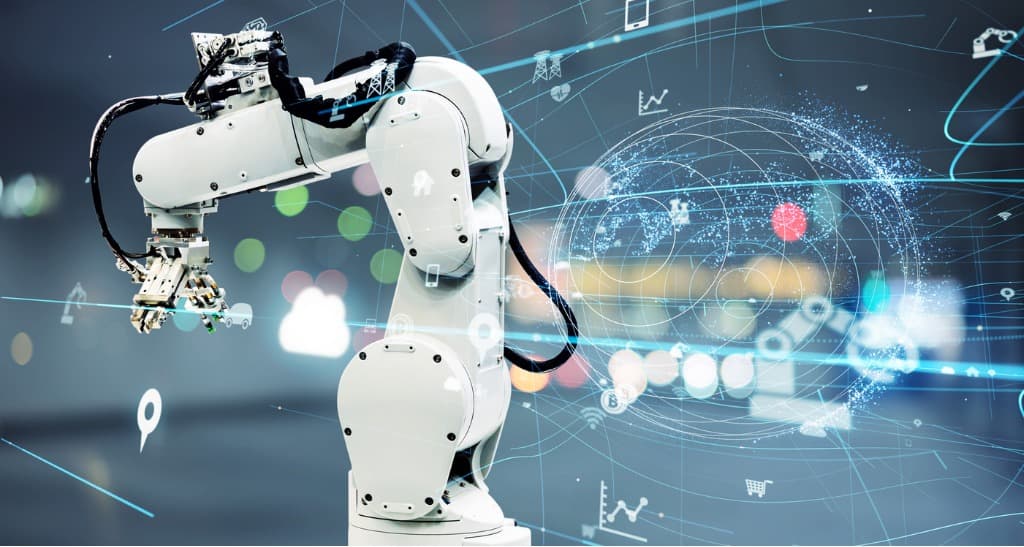Robotics engineers are technical gurus who have a passion for automating processes and exploring new technological horizons. They have invaluable scientific, mechanical and automation engineering experience, and robotics expertise that make their profession central to simplifying human-intensive processes.
More specifically, robotics engineers are responsible for researching, developing, creating, and evaluating robots, including their mechanical, electrical, and software systems. They have to consider factors such as the robot's size, shape, and mobility, as well as its intended purpose and the environment in which it will operate. They need to also research the most cost-effective and secure techniques of manufacturing robotic systems.
Robotics engineers create the software and control systems that enable robots to operate autonomously or under human supervision. Using popular programming languages, they program the robot to perform specific tasks, such as welding or painting, and ensure that it can perform these tasks safely and efficiently. They may use simulation software to test the robot's performance before building a physical prototype, and they may also perform tests in a laboratory or real-world environment to observe the robot's behavior and identify any problems.
Robotics engineers often work as part of a larger technical team, collaborating with other engineers, like mechanical and robotic process automation (RPA) engineers, and diverse technicians to design and build complex robotics components or systems. This means they need to communicate and cooperate effectively with their colleagues and coordinate their work to ensure that the final product meets the project's goals and specifications.
The robotics field is rapidly changing, so robotics engineers must stay informed about the latest developments in their field, including new materials, sensors, and control systems. They regularly attend conferences and workshops, and read scientific journals, to stay informed and connected with other experts in the field.
In this role, robotics engineers can apply their technical creativity in automation and mechanics to work in many industries. Popular sectors include electronics, computers, and information technology (IT), manufacturing, automotive, aerospace, supply chain, food processing, agritech, and more.
In the software industry, robotics software engineers need to design software that will control the robots on an assembly line. This work involves using a programming language to write the code that the robots will execute. Meanwhile in the automotive industry, robotics engineers may leverage their mechanical engineering and related expertise to improve a six-axis robot’s ability to install a door or windshield.
Apply now for a job as a Robotics engineer!
Project Engineer (m/w/d) für Smartphone-Integration (w/m/d)
Location: Regensburg
Branche: Automotive
Expertise: Research & Development
Experience: 2 years
Du bist verantwortlich für die vollständige Betreuung der Funktionen Apple CarPlay und Google Android Auto in Android Automotive basierten Infotainment-Systemen. Du koordinierst die Entwicklung sowohl innerhalb des Teams als auch teamübergreifend. Wichtige Themen stimmst Du mit dem Management-Kreis ab und nimmst an Projektmeetings mit Kunden teil. Du arbeitest eng mit den Teams für Connected Media und Connectivity zusammen. Auch die Durchführung von Dokumentationsprozessen gehört zu Deinen Aufgaben. Zusätzlich unterstützt Du bei der Zertifizierung durch Apple und Google.
Quality Engineer Steuergeräte (w/m/d)
Location: Regensburg
Branche: Automotive
Expertise: Quality Management
Experience: 2 years
Sie übernehmen die Lieferanten-Potentialanalyse zur Feststellung der Prozessfähigkeit gegen Prozessnormen. Die Organisation und Durchführung von Prozess- und Qualitäts-Audits/ Assessments bei Lieferanten gehören ebenfalls zu Ihrem Tätigkeitsprofil. Sie übernehmen ebenfalls die Abarbeitung von Beanstandungen und Problemlösung mittels 8D Prozess. Sie wirken bei den Herstellbarkeitsbewertungen, Risikoanalysen, Lastenhefterstellung und der Implementierung der notwendigen Prozesse mit. Die Sicherstellung der Prüfung der Produktqualität während der Entwicklungsphase und in der Serie entsprechend Vorgaben bzw. Spezifikation liegt in Ihrer Verantwortung.
Supplier Quality Engineer (m/w/d)
Branche: Machine & Plant Design
Expertise: Production & Manufacturing
Experience: 2 years
Prüfung, Entwicklung und Auditierung von Lieferanten Vorbereitung der Lieferantenauswahl in Zusammenarbeit mit dem Einkauf Definition von Qualitätsstandards und Liefervorschriften Steuerung von Abweichungen und Korrekturmaßnahmen Durchführung von Lieferantenbewertungen und Entwicklungsplänen Umsetzung von Qualitätsanforderungen gemäß IATF 16949 und ISO 9001 Bearbeitung von Reklamationen und Kundenanforderungen Stellvertretung der Qualitätsleitung
System Engineer (m/w/d)
Location: Freiburg im Breisgau
Branche: Automotive
Expertise: IT & Shared Services
Experience: 2 years
Konfiguration und Inbetriebnahme handelsüblicher IT- und Netzwerkkomponenten in einem sicherheitskritischen Umfeld Klärung der technischen Machbarkeit, Mitgestaltung der Systemarchitektur und Optimierung des Systems hinsichtlich Kosten-Nutzen-Aspekten Analyse von Systemanforderungen und Entwicklung entsprechender Testprozeduren Planung, Spezifikation und Durchführung von manuellen und/oder automatisierten Tests Dokumentation der Ergebnisse sowie Erfassung und Analyse von Abweichungen Koordination aller internen und externen Zulieferer, wie z.B. Dokumentation, Testabteilung, Hardwareabstimmung, Softwareprodukte und -entwicklung
Software Requirements Engineer (w/m/d)
Location: Paderborn
Branche: Infrastructure
Expertise: IT & Shared Services
Experience: 2 years
Ableitung und präzise Spezifikation von Softwareanforderungen basierend auf Systemanforderungen Steuerung und Koordination des Entwicklungsprozesses im eigenen Scrum-Team Enge Abstimmung der Systemanforderungen mit relevanten Stakeholdern wie Systemtechnik, Unterauftragnehmern (UANs) und Kunden Klärung und Definition von Softwareschnittstellen in Zusammenarbeit mit Fachabteilungen und UANs Funktion als Bindeglied zwischen Systemtechnik und Softwareentwicklung: Klärung offener Fragen und Bewertung technischer Umsetzbarkeit Koordination und Abstimmung querschnittlicher Themen mit Product Ownern (POs) und Requirements Engineers angrenzender Softwareteams
DevOps Engineer (w/m/d)
Location: Ingolstadt
Branche: Aerospace
Expertise: Research & Development
Experience: 3 years
Betrieb, Wartung, Absicherung und Weiterentwicklung der Softwarebereitstellung und der betrieblichen IT-Infrastruktur. Spezifizierung, Konfiguration und Einführung der IT-Infrastruktur für interne Entwicklungssysteme sowie für Endnutzer-Systeme in Kundenabteilungen in Mitteleuropa. Unterstützung eines strikten Konfigurationsmanagement-Prozesses zur Festlegung und Identifikation von Baselines der IT-Systeme. Sicherstellung der Compliance der Systeme mit IT-Sicherheitsrichtlinien, wie dem BSI IT-Grundschutz, durch die Anwendung von Updates, Patches und entsprechenden Konfigurationen. Kontinuierliche Aktualisierung der Entwicklungssysteme entsprechend der Weiterentwicklung unserer Missionsplanungssysteme. Definition von Prozessen für die zuverlässige und reproduzierbare Einführung neuer Baselines in den Betrieb. Mitarbeit in einem engagierten Entwicklungsteam zur Verbesserung der Wartbarkeit und Betriebsfähigkeit der IT-Systeme sowie der Tool-Kette, die diese unterstützt.
Data Engineer (w/m/d)
Location: Stuttgart
Branche: Automotive
Expertise: IT & Shared Services
Experience: 2 years
Entwicklung und Pflege von Datenverarbeitungspipelines für die Echtzeitdatenanalyse Messdaten Implementierung von Algorithmen zur Datenstromverarbeitung und -analyse, um Einblicke in die Fahrzeugleistung und -nutzung zu gewinnen. Anwendung statistischer Methoden und maschinellen Lernens zur Vorhersage von Wartungsbedarf und zur Verbesserung der Fahrzeugzuverlässigkeit. Zusammenarbeit mit Ingenieurteams, um Datenanforderungen zu definieren und Messstrategien für Entwicklungsprojekte zu entwickeln. Visualisierung von Live-Datenströmen und historischen Messdaten für technische Teams und Stakeholder. Überwachung der Systemleistung und Durchführung von Fehleranalysen in Echtzeit-Datenströmen. Dokumentation und Präsentation von Analyseergebnissen und Erkenntnissen aus Datenströmen.
Automation Engineer (w/m/d)
Branche: Life Sciences
Expertise: Research & Development
Experience: 2 years
Selbständige Erstellung von Funktionsplänen gemäß betrieblicher und allgemeiner Standards für Maschinen und Anlagen Anfertigung von Cause & Effect-Tabellen und -diagrammen sowie von Narratives und Funktionsbeschreibungen Zusammenarbeit mit dem Projektteam bei der Ausarbeitung von P&IDs und Unterstützung der Inbetriebnahmeingenieure Durchführung von Abstimmungen mit Kunden und Lieferanten Unterstützung bei der Entwicklung von Software für HMIs, PLCs und DC Beteiligung an internen und externen Prüfungen sowie Kundenabnahmen (FAT, SAT)
System Engineer - Maschinenbau
Location: Wien
Branche: Machine & Plant Design
Expertise: Research & Development
Experience: 3 years
Als System Engineer sind Sie das technische Bindeglied zwischen dem Kund:innen-Projekt und internen Projektbeteiligten und formulieren projektübergreifende Entwicklungsziele und Lastenhefte. Sie verfolgen Entwicklungspakete bis zur Serienreife bzw. Kund:innen-Abnahme und wirken aktiv an der Realisierung technischer Konzepte für Neuprodukte mit. Sie prüfen die technischen Anforderungen auf deren Realisierbarkeit, sowie deren Auswirkungen auf bestehende Systeme, Standards und Richtlinien. Des Weiteren sind Sie technische/r Ansprechpartner:in für Kund:innen und Lieferant:innen zur Beratung und Abklärung von technischen Anforderungen. Zielgerichtet und genau stellen Sie den Projektfortschritt unter den Aspekten Zeit, Kosten, Umfang sicher. Die Begleitung von Validierungs- und Abnahmeversuchen mit den entsprechenden Systemlieferant:innen und Kund:innen liegt ebenfalls in Ihrer Verantwortung.
Requirements Engineer (m/w/d)
Location: Karlsruhe
Branche: Conventional Energy
Expertise: IT & Shared Services
Experience: 2 years
Erfahrungen im Bereich Anforderungsanalyse 3-5 Jahre von verteilten Systemen Umgang mit Anforderungsmanagementsoftware wie Azure DevOps oder Jira, Doors V-Modell Prozessparadigma, Agile Methoden, hybride Prozessmodelle Kenntnisse in Telekommunikation, IP, Cloud, Hausautomatisierung, Mobile Apps, Matter sind wünschenswert
Support Engineer - DOORS (w/m/d)
Location: Bremen
Branche: Information Technology
Expertise: Production & Manufacturing
Experience: 1 years
Zu Ihren Aufgaben als Support Engineer gehört die Administration des zenralen DOORS-Servers. Dabei sind Sie für die Zuweisung und Überarbeitung von Berechtigungen verantwortlich. Sie schulen und unterstützen selbständig interne und externe Stakeholder bei der Anwendung und Umsetzung der Methoden und Tools. Weiterhin kümmern Sie sich um die Übernahme von Spezifikationen aus Word zu DOORS. Nicht zuletzt verwalten Sie die Datenpflege in DOORS.
Cost Engineer (w/m/d)
Location: Lindau Bodensee
Branche: Automotive
Expertise: Controlling
Experience: 2 years
Entwicklung und Umsetzung innovativer Ideen zur Kostensenkung bei Serienprodukten ohne Qualitäts- oder Leistungsbeeinträchtigung. Analyse von Designs, Materialien und Fertigungsprozessen zur Identifikation effizienter Alternativen. Erstellung und Verwaltung von Konstruktionskonzepten sowie Umsetzung von Änderungen in PLM-Systemen. Enge Zusammenarbeit mit Technik-, Beschaffungs- und Fertigungsteams sowie internationalen Zulieferern. Durchführung von Kosten-Nutzen-Analysen und Benchmarking mit Branchenstandards. Sicherstellung der Einhaltung regulatorischer, qualitativer und sicherheitsrelevanter Vorgaben. Dokumentation, Verfolgung und Berichterstattung über VAVE-Aktivitäten und erzielte Einsparungen.
Common robotics engineer responsibilities
A robotic engineer is responsible for performing a range of important engineering tasks. Responsibilities may include:
- Designing, building, maintaining, or improving robotics and automation components, products, or systems;
- Testing and prototyping an array of robotics and automation components and systems;
- Refining designs and developing software and controls using programming languages to activate robots and automation equipment;
- Integrating sensors and other technologies into the robotic system to improve its performance;
- Troubleshooting problems within the robotic system or components and identifying ways to improve its reliability and efficiency;
- Using engineering software and computer-assisted design (CAD) software to execute tasks;
- Building and deploying functional robotics systems, machines, or devices;
- Collaborating with diverse technicians, like robotics engineering technicians, other multidisciplinary engineers, and team members, as well as customers on the robotics engineering projects;
- Collecting data or writing reports related to robotics design projects;
- Conducting research and experimenting to advance robotics and automated equipment;
- Training and educating other engineers, technicians, and end users on the proper operation and maintenance of the robotic system;
- Preparing and maintaining detailed documentation and specifications on the robotics equipment;
- Staying up-to-date with the latest trends and developments in the field of robotics, including emerging technologies and new applications;
- Participating in the planning, budgeting, and scheduling of robotics projects.
Qualifications for robotics engineers
Robotics engineers should have at least a Bachelor’s degree in Robotics and Mechanical Engineering, Mechanical Engineering Technology, Mechatronics, or a related technical field. In some countries, an engineering license may also be required.
Additional supporting skills and experience include:
- 3-5 years of related engineering and automation experience;
- Solid understanding of robotics, electrical and mechanical engineering systems;
- Excellent applied math, statistics, and design skills;
- Proficiency in using diverse computer operating system hardware & software, and the latest design, modeling, and calculation software like AutoCAD, SolidWorks, Matlab/LabView, or similar;
- Very familiar with programming languages, such as C/C++, Python, MATLAB, Lua, etc. and with the Robot Operating System (ROS), among others;
- Strong communication skills to work easily with other engineers, technicians, and team members;
- Some work experience gained through an apprenticeship or in a relevant role is an advantage.




